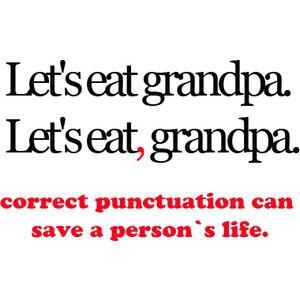 My favourite style of writing is conversational. Fortunately, this is one thing blogging and copywriting have in common. This means that every once in a while, it’s permissible to break the conventional rules of grammar in order to communicate successfully.
My favourite style of writing is conversational. Fortunately, this is one thing blogging and copywriting have in common. This means that every once in a while, it’s permissible to break the conventional rules of grammar in order to communicate successfully.
Both bloggers and copywriters usually end sentences with prepositions, dangle a modifier in a purely technical sense, or make generous use of the ellipsis when an EM dash is the proper choice—all in order to write in the way people actually speak.
When done effectively, it’s a great method; however, there are errors that can simply make one look like an arse. Occasionally, particularly in the conversational style, we take for granted that what we have to say is much more important than a few trivial grammatical errors, but the truth is some people will completely disregard your credibility, or worse, not give you business, if you make senseless errors when you write.
Frankly, there are so many common blunders, I’m surprised I was able to narrow it down and avoid drafting a manual or hate book. Years ago, a friend of mine told me I should write a book called, “You know what bugs me?” Where would I begin? I digress.
Here are five mistakes that really tick people (particularly me) off:
1. It’s vs. Its
This common mistake can be easily dodged by clarifying to yourself what it is you’re trying to say.
“It’s” is a combination of “it is” or “it has.” “Its” is a possessive pronoun, as in “this diamond ring has lost its sparkle.” Here’s a tip – repeat your sentence aloud to ensure it makes sense.
2. Your vs. You’re
This one makes me twitch, and I see it everywhere.
“Your” is a possessive pronoun, as in “your dog” or “your kid.” “You’re” is a contraction for “you are,” as in “you’re damaging your reputation by using your when you really mean you are.”
3. There vs. Their
“There” is used in a variety of ways, including as a reference to a place (“It’s pretty cold out there”) or as a pronoun (“there is no hope”). “Their” is a plural possessive pronoun, as in “their luggage” or “their thoughts.”
4. Affect vs. Effect
This one, I have to admit, gets the better of me on occasion. It doesn’t cost anything to take a moment to think it through – or look up the proper usage, and get it right for the sake of your integrity.
“Affect” is a verb, as in, “your ability to use words in the proper context will affect your ability to gain respect as a writer.” “Effect” is a noun, as in “The effect of an employer motivating their staff is well documented.” By thinking in terms of “the effect,” you can usually sort out which is which, because you can’t stick a “the” in front of a verb. Some people (i.e. lawyers) use “effect” as a verb, but if you’re not a lawyer, avoid it at all costs.
5. The Dangling Participle
This common mistake will not only ruin the flow of your writing, it will ultimately alter your entire thought.
After being whipped violently, the chef fried the egg.
Poor chef.
The problem with this statement is that the participial phrase that begins the sentence is not intended to modify what follows next in the sentence. However, readers mentally expect it to work that way, so your opening phrase should always modify what immediately follows. If it doesn’t, you’ve left the participle dangling, as well as your audience.
After all that, you may find it interesting to know that in school, I loathed the topic of grammar in English class, so it wasn’t through formal education that it actually sank in. I learned to write properly because I can be fairly neurotic about making mistakes. Don’t get me wrong; if you show me an incorrect sentence, I can fix it, but if I need to explain why it’s wrong, I am a self-proclaimed expert Googler.
Do you find youself making grammatical errors often? I can help!
